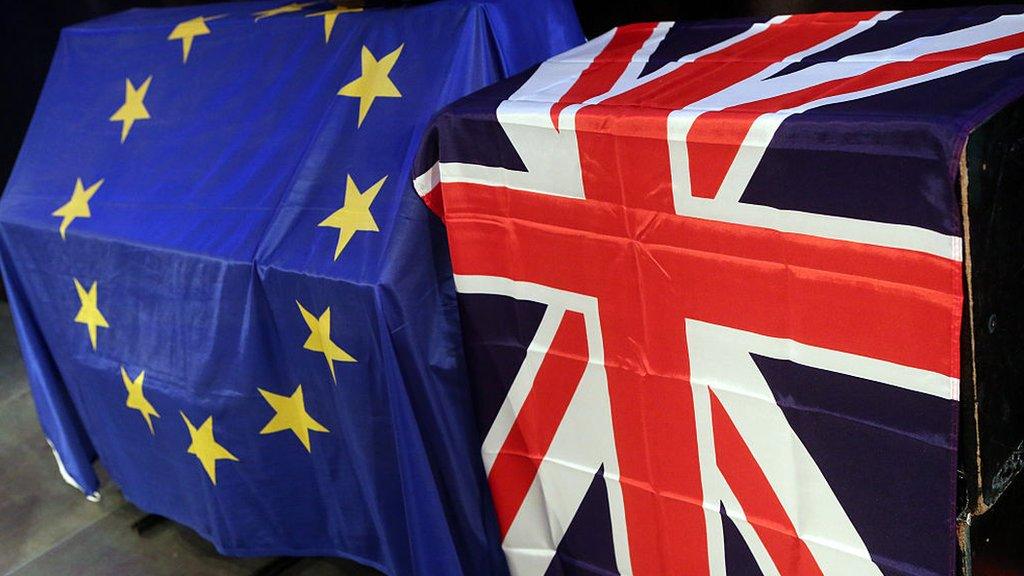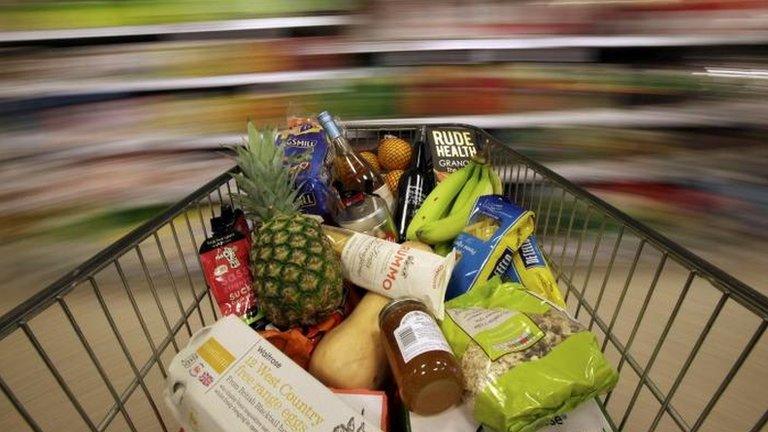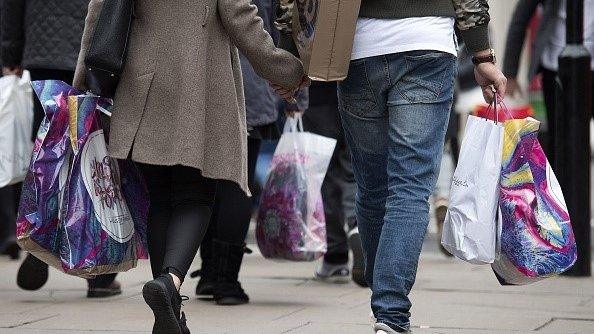Household savings ratio falls to record low, says ONS
- Published

UK economic growth was "robust" in late 2016, but economists have warned of worrying signs as the savings ratio fell to a record low.
The Office for National Statistics (ONS) confirmed, external the UK economy grew by 0.7% in the final three months of 2016.
Economists said that was driven by a rise in consumer spending, partly funded by households dipping deeper into savings and running up debt.
The savings ratio fell to its lowest since the early 1960s, the ONS said, external.
It said the ratio - which measures the outgoings and incomings that affect households - partly fell in the final quarter of last year because of changes in insurance and pension values.
But it was also part of a wider trend, which has seen the ratio fall since mid-2015 as consumer spending outstripped growth in disposable incomes.
John Hawksworth, chief economist at PwC, said: "On the surface, today's national accounts data reconfirmed the earlier picture that the UK economy remained relatively robust in the second half of 2016 following the Brexit vote.
"Beneath the surface though, some more worrying signs are evident."
Among them is that household net borrowing in the fourth quarter rose to over £11bn, the highest quarterly level in nearly 30 years, he said.
"This pushed the household savings ratio in [the fourth quarter of] 2016 down to its lowest level since comparable records began in 1963," he added.
The Bank of England has predicted that weaker incomes will result in a "significant fall" in the saving ratio over the next three years.
'Tough year'
The UK's economy last year defied forecasts that it would slow sharply after the vote in June to take the country out of the European Union.
However, inflation has gathered pace in recent months, driven in part by the fall in the value of sterling since the Brexit vote.
With prices rising and wage growth slowing, 2017 was "likely to be a very tough year for the consumer", said Martin Beck, senior economic advisor to the EY Item Club.
He added that monthly figures for the services sector indicated that output fell 0.1% in January.

Analysis, Jonty Bloom, business correspondent
The British economy continued to grow strongly at the end of last year boosted by the dominant services sector and increasing exports.
That meant that growth for the whole year was a respectable 1.8%.
The two key factors were the fall in value of the pound which has helped British exporters to boost exports by 4.6% and by strong consumer spending that has kept the services sector of the economy performing well.
Household spending rose by 0.7% in the last three months of 2016 alone. But there are signs that may not continue for long; inflation is now rising at almost the same rate as wages and that is likely to squeeze spending power, while households have few savings to fall back on.
The savings ratio at 3.3% is already at its lowest level since records began in 1963.


- Published28 March 2017

- Published21 March 2017

- Published2 February 2017

- Published20 January 2017
